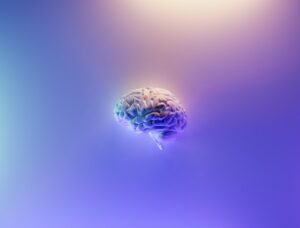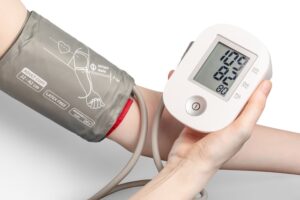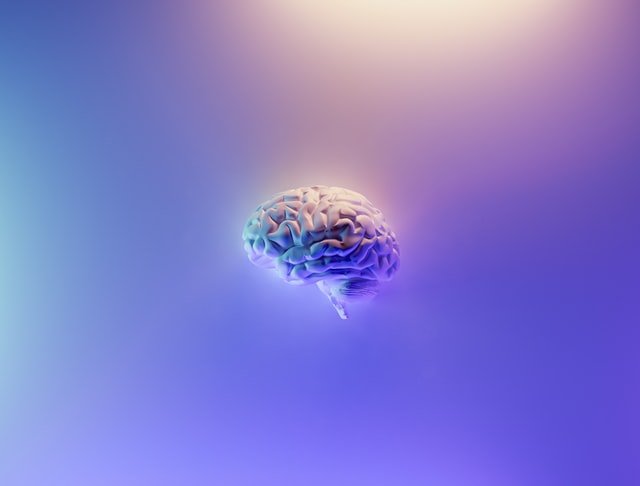
High blood pressure affects half of all Americans, many of whom are unaware of their condition. As a result, I’m naturally concerned about you, given the risk for heart attacks, strokes, and dementia that exists with high blood pressure.
Have you recently checked yours? If not, two new brain-scan studies might be just what you need to get motivated to do so.
The first study, published in the journal Neurology, reveals a link between high blood pressure and brain atrophy—a decrease in total brain volume—in 1,846 people with an average age of 78.
The participants had no signs or symptoms of dementia at the start of the study and were deemed “cognitively normal,” based on a battery of mental tests.
Over the course of five years, they underwent a brain scan that measured overall brain volume and thickness of the gray matter, which is composed of nerve cells.
The researchers found that for each 20 mm Hg increase in systolic pressure—the top number in a blood pressure reading—brain volume decreased by 0.32 percent, and the thickness of the gray matter shrank by 0.12 percent.
Smaller brains
The first study discovered that individuals with high blood pressure and a brain are smaller than those without high blood pressure.
The greatest brain shrinkage was observed in folks who had been diagnosed with high blood pressure before the age of 35. Those who had high blood pressure between the ages of 35 and 44 were 61 percent more likely to get dementia during a 12-year follow-up period; those with high blood pressure between the ages of 45 and 54 were 37 percent more likely to get dementia.
The results build on prior research connecting high blood pressure to an increased risk of dementia (though direct cause-and-effect hasn’t been established).
The researchers conclude in the journal Hypertension that reducing and controlling high blood pressure in early adulthood may help prevent dementia later on.
Older brains
The second study reflects a growing awareness that elevated blood pressure does not have to be diagnostically high to be harmful.
People ages 44 to 76 with high blood pressure had brains that, on average, aged six months more than the brains of individuals of the same age with optimal blood pressure, according to researchers at Frontiers in Aging Neuroscience.
This accelerated aging was most pronounced in a region of the brain called the medial temporal lobe, a neural structure known to be crucial for memory.
The findings build on previous research linking high blood pressure to an increased risk of dementia (though there is no direct cause-and-effect link).
The deteriorations described in the study — including brain cells dying, decreasing brain parts, and lost connections between them — appear to begin when people have elevated blood pressure in their twenties or thirties, then accelerate in midlife.
The researchers found no differences in brain volume or thickness of the cerebral cortex between individuals with normal blood pressure and those with optimal blood pressure.
High blood pressure is already considered a major risk factor for dementia. These findings suggest that high blood pressure leads to changes in the brain decades before dementia symptoms begin.
Dr. Manu Goyal, an assistant professor of radiology at Washington University School of Medicine in St. Louis
“This notion that one’s brain gets damaged by high blood pressure later in life isn’t entirely accurate,” says study leader Nicolas Cherbuin, PhD, head of aging and well-being research at Australian National University. “It begins earlier.”
Redefining The Definition Of ‘High blood pressure’

High blood pressure, often known as hypertension, has long been recognized as the “silent killer,” with U.S. deaths attributable to it increasing by 45% between 1999 and 2017.
It’s a risk factor for heart disease, diabetes, and stroke death. However, our understanding of just how harmful high blood pressure can be is still developing, and two recent studies from Frontiers in Aging Neuroscience and Hypertension give a better understanding of why high blood pressure should be a concern for health professionals and their patients.
The normal blood pressure limit had been 140/90 mmHg for a long time. (The upper number, systolic pressure, registers peak blood pressure in the arteries when the heart contractions.
The bottom number, diastolic reflects the lowest pressure between heartbeats.) Both numbers rise as our arteries age harden and get clogged with cholesterol-laden plaques.
However, the latest guidelines from the American Heart Association and American College of Cardiology say high blood pressure is anything above 130/80 mmHg. That’s a big change from previous definitions, which started at 140/90 mmHg.
In 2017, with better science to back it up, the American College of Cardiology and the American Heart Association lowered the threshold for high blood pressure from 140/90 to 130/80.
Normal blood pressure is now defined as 120/80 or lower. The number of Americans with high blood pressure rose from 32% to 46%.
- See also: depression predicated brain rhythms
- See also: brain implant allows thoughts into words
Rethinking the meaning of ‘normal’
According to Dr. Cherbuin and his colleagues, “average” blood pressure is not always healthy.
Using brain scans, they determined that people with blood pressure between the optimal level of 110/70 and the “normal” threshold experience accelerated aging.
“While having a normal blood pressure (below 120/80) is beneficial, we did not see any dramatic difference in brain measures between those who had lower and higher blood pressure,” Dr. Cherbuin told Fatherly.
“Thus, if your blood pressure is 120/80 or 130/80, that’s great — but it may be best to get it down even lower than this, if possible. If you can’t, don’t worry too much about it.”
The good news is that like body weight and sleep quality, blood pressure is one of the simplest health indicators to track. Many pharmacies provide free blood pressure machines, and home equipment with reliable readings cost less than $100. (Note that if you do it yourself, sit still for at least five minutes and take two measurements that are a few minutes apart.)
Tracking blood pressure also gives a clear sense of what works and what doesn’t, so you can recommend lifestyle changes to your patients.
A friendly reminder of the tired-but-true methods for controlling or lowering blood pressure, at the risk of making your blood boil:
- Even if you despise it, exercise more and eat healthier meals.
- Salt should be avoided.
- Increase your sleep duration and quality.
- Avoid cigarettes and alcohol.
- Learn to control your stress levels.
If you already have high blood pressure, or if it’s increasing, please visit a doctor before you end up in the emergency room, which I assure you will not be enjoyable. It’s never too late to do what’s best for your heart and overall health.



